White Swiss Shepherd
The White Swiss Shepherd is an elegant, classy, handsome dog, often called a Berger Blanc Suisse. White Swiss Shepherds are medium-to-large, powerful, well-muscled dogs recognized as a breed in Switzerland in 1991. In 2011 the FCI also recognized the breed.
White Swiss Shepherds and German Shepherds share a common ancestry. Like German Shepherds, Swiss Shepherds are alert, protective, and highly intelligent, but Swiss Shepherds are calmer, gentler. They are less aggressive and “serious” than German Shepherds and are also more attached, even clingy, to their owner.
Therefore they aren’t used for police or military work. There is also a difference in coat color. While German Shepherds are typically tan and black or all black, the Swiss Shepherd is only all white.
Dog Breed Video

Height:
21-26 in (53-66 cm)

Weight:
55-88 lb (25-40 kg)

Origin:
Switzerland

Life Expectancy:
8-12 years
Dog Breed Characteristics
The White Swiss Shepherd is a strong and powerful dog breed that is medium-sized. They have erect ears and a double coat that is either medium length or a bit on the longer side. Their body is elongated and has many characteristics in common with their German counterpart.
As we already mentioned, the WSS was molded to its modern version in the United States, Canada, and Switzerland, yet despite being very popular in the US, it is still not recognized and registered in the American Kennel Club as an independent breed. It is a fairly “new” dog breed that was standardized and created about 100 years ago and in this short time, it became registered in most of the world’s biggest cynology associations. As it is a Swiss breed and Switzerland is a member of the Fédération Cynologique Internationale (FCI) so it is natural that this breed is fully recognized and registered by the FCI.
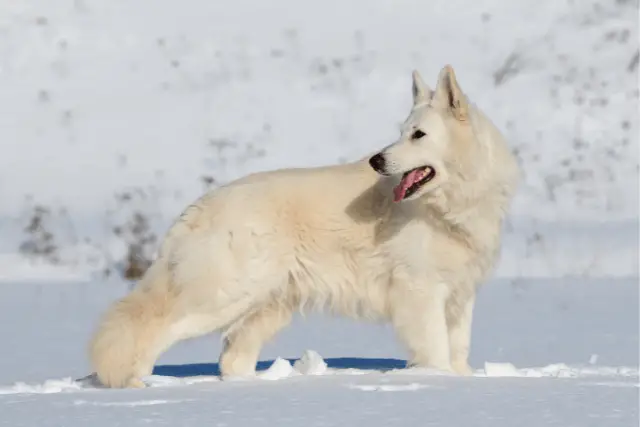
Their domestic cynology association is in charge of their standard, and the FCI adopted the standard from the Swiss cynology association.
FCI standard
They are described in this standard as having a moderately elongated body that is well-muscled and strong. The standard also has the required size for this breed, and it is 23-26 in (58-66 cm) for males and 21-24 in (53-61 cm) for female dogs. Their weight should always be in proportion to their size and should be in a range of 66-88 lb (30-40 kg) for male dogs and 55-77 lb (25-35 kg) for females.
They were officially registered by the FCI on the 4th of July 2011.
Grooming and care
The White Swiss Shepherd is known for its white coat that sheds moderately all year (the coat sheds heavily twice a year), so we recommend you invest in a heavy-duty vacuum and brush if you are thinking about getting a White Swiss Shepherd. Their coat consists of a harsher topcoat and a softer undercoat.
Owners recommend brushing the dog’s coat at least 3 times a week to keep the coat shiny and free of tangles and mats. Regular brushing also helps with dead and loose hair. Because of that beautiful, long coat, the White Swiss Shepherd is tolerant of the cold. Besides the long-haired variant, there is also White Swiss Shepherd with short hair.
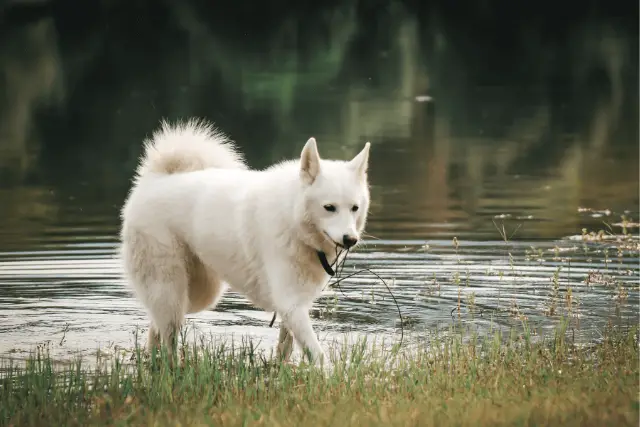
The White Shepherd's teeth should also be brushed at least 2-3 times a week to prevent bacteria build-up and help keep their breath fresh. There are special dog toothbrushes that will make that job easier for you. Also, use only dog toothpaste and never use human products for your dog, as these products can contain chemicals that can be harmful to your dog.
Clip your dog's nails when needed and check their ears regularly; remove bacteria and dirt that can get caught inside to prevent ear infections. Never insert anything in their ear canal, and use a soft cotton cloth to clean the outer parts of their ears.
Temperament
The White Swiss Shepherd Dog is an incredibly devoted and loyal dog that goes along great with children and people in general. Often compared with German Shepherds, these dogs are mellower than their German cousins, but they are still very protective of their family.
They are very energetic and need to be provided with lots of mental stimulation and daily physical exercise. They love to swim, run, hike… almost any activity will make them happy so make sure that you have enough free time and energy before you decide to get yourself a Berger Blanc Suisse because, if their energy is not spent properly, like most of the dogs, your calm and mellow Swiss Shepherd might become destructive.
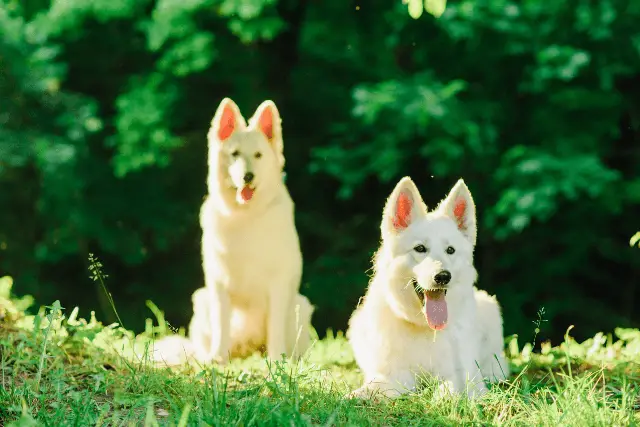
To help your dog spend their energy in a healthy way, think about getting them these orange-blue fetch balls. They are tough and water-resistant.
White Swiss Shepherd and children
These dogs love their family and are very protective of them. That goes for the children as well. They will be very protective of them and extremely patient. However, they are quite large dogs so you should supervise their playtime so your dog doesn’t accidentally knock your child over.
Situations like that can happen when dogs get carried away while playing. Never leave dogs alone with children unsupervised, no matter what breed is in question.
Berger Blanc Suisse and other pets
These dogs are not known to be the best at making new canine friends. They were described as being distant and uninterested towards other dogs and will always prefer to spend time with their family rather than other dogs.
They can get along quite well with pets that they live with and especially if they were raised together. Their natural protective instinct will tell them to protect other pets they consider a part of their family.
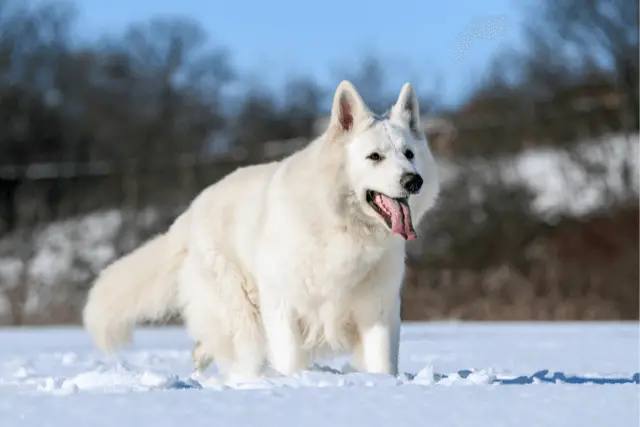
Berger Blanc Suisse - intelligence
The White Swiss Shepherd Dog is incredibly intelligent and eager to learn. The easiest way to train this breed is after gaining their loyalty and respect because there isn’t much that they wouldn’t do for their owners. There are extremely clingy with their owners.
If you are considering getting yourself a Berger Blanc Suisse prepare to never be alone again – the dog will probably follow you everywhere and sometimes even try to copy the things that you do. They are intuitive to their owner’s feelings and emotions, hate to be alone, and can suffer from separation anxiety.
Training
White Swiss Shepherds learn quickly and will listen to you to make you happy. But the downside is that these dogs will pick up bad habits as fast as they can pick up good ones. They tend to be naturally suspicious of people they don't already know, so a vital part of training is early socialization, to teach your White Swiss Shepherd Dog to be observant and slightly aloof with new people.
The process of proper socialization should start as soon as your dog arrives at your home. Try exposing them to a lot of different situations, sounds, sights, people, and after their necessary shots, other dogs and puppies as well. This process will make sure you end up with a well-rounded, stable, and well-behaved dog that will know how to react in new situations.
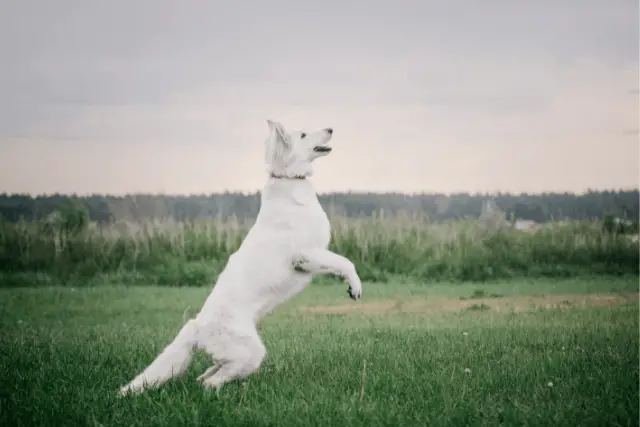
Berger Blanc Suisse dogs are very sensitive to how they are treated. The environment that they are growing in will shape their character. They respond well to positive reinforcement and treats. It is important to praise them for their good habits, and because of that, these dogs can easily become spoiled, so keep that in mind.
White Swiss Shepherds are very food-motivated. To help you train your dog, try using these treats your dog will absolutely love - Bones & Chews Grain-Free Jerky.
Health problems
There are some medical conditions and diseases that this breed is prone to. Those conditions are
- hip and/or elbow dysplasia,
- joint issues,
- cruciate ligament rupture,
- allergies (skin allergies and food intolerances are very common),
- epilepsy,
- hemophilia (a disorder of the clotting cascade),
- bloat, etc.
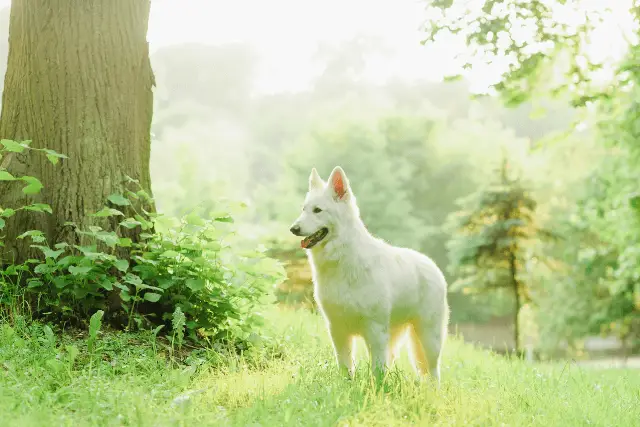
White Swiss Shepherds breeders
White Swiss Shepherds are very pricey dogs and are not that easy to find. On average, a purebred White Swiss Shepherd puppy costs up to 1300 dollars. Also, because they are prone to some serious health issues, the costs of having a Berger Blanc Suisse will be even higher. We all know that it is better to prevent than to cure, so the most effective way to reduce the risk of the White Swiss Shepherd suffering from some of the diseases they are prone to is - responsible breeding.
When buying a puppy, you should be able to ask the breeder all the questions you are interested in and to request veterinary certificates (for example, hip scores of both parents). If possible, make sure to see the mother of the puppy you are interested in; see the conditions she lives in, look at other pups, look at her, and if there is anything weird or unusual about the mother, siblings, or the place there are kept in, ask the breeder what is going on.

Remember, to make your White Swiss Shepherd healthy and happy you must: spend a lot of time with the dog, provide it plenty of exercise; groom the dog’s coat regularly, and feed the dog quality food that meets all their nutritional needs.
FUN FACT: Berger Blanc Suisse makes excellent watchdogs and will always alert the family if there is an intruder approaching.
FAQ
Not really. White Swiss Shepherds are fairly friendly, and they make terrible guard dogs. They might be good watchdogs that will notify you about anyone arriving, but they will rarely attack anyone trespassing their territory.
Yes, Swiss White Shepherds make great family pets. They are active, energetic, cuddly, and outgoing, which makes them ideal for active families. They love going on adventures and spending time close to their owners.
Yes, White Swiss Shepherds are heavy shedders. They have a thick double coat that had to insulate them from the cold, which means they have soft, wooly undercoats they entirely shed twice a year and shed moderately year-round.
Yes, Swiss White Shepherds are great with younger and older children. They have plenty of energy, enabling them to keep up with the toddler’s pace of play. They are gentle and friendly towards kids.
Swiss Shepherds are relatively vocal. They love to communicate their feelings with different whines, growls, and barking. They bark when they play, get excited, train, and perform the duty of watchdogs.
The average lifespan of a Swiss White Shepherd is between 8 - 12 years.
The average price of a well-bred Swiss White Shepherd is around $1.300. Certain show-quality bloodlines can go much higher.
World Dog Finder team

Updated at29.08.2023.
Breed History
It is impossible to talk about the history of these dogs without mentioning the German Shepherds. Both breeds are relatively “young” and share the same ancestors. These dogs came are the descendants of the old German shepherding dogs that could be found across Germany and were quite different depending on the region they came from.
They all shared similar shepherding and herding traits and weren’t properly standardized until the 1930s. A former German military captain named Von Stephanitz wanted to create the ultimate working dog breed, and he tried organizing breeding clubs dedicated to creating this new one.
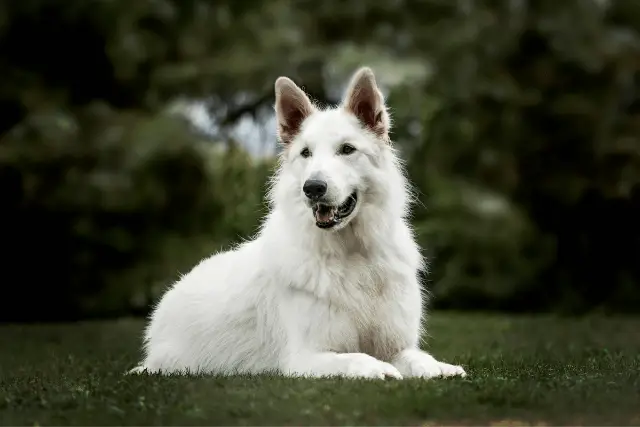
At that time, all herding and shepherding dogs found in the German area were grouped under one name, “German Shepherd,” even though those dogs were completely different. Von Stephanitz standardized them and decided which traits and characteristics should be carefully bred and promoted through the bloodlines.
Von Stephanitz used his old military connections, introduced these dogs to German military officials, and got his dogs enlisted and drafted by the German military. As we already know, these dogs had many jobs and performed different tasks in the military. It remains the most popular dog breed for law enforcement around the world.
White German Shepherds are not allowed by their standards, and dog breeders started differentiating these breeds soon after these dogs were created. They started being carefully bred, and their characteristics were a bit “milder” than those of the German Shepherds. By World War II was finished, many dog breeds nearly became extinct, and the White Swiss Shepherd was one of them.
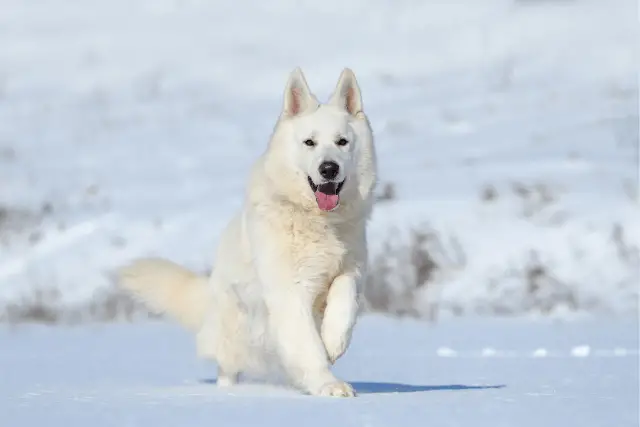
These dogs were shipped overseas to ensure their survival. Breeders in the United States of America and Canada welcomed these dogs with open arms. This breed was mostly molded to its modern version by the American, Canadian, and Swiss breeders. This breed started to be popular across the NorthAmerica and Canada and when the smoke cleared in the European battlegrounds, they started regaining most of their former popularity in the old Continent.
Today, the Berger Blanc Suisse is nearly as popular as its German cousins and can be found across the globe. They never became the go-to breed for law enforcement as they have a peaceful and friendly temperament. They are commonly used as therapy and assistance dogs that help many people get through their daily life routines and hard times in their life.
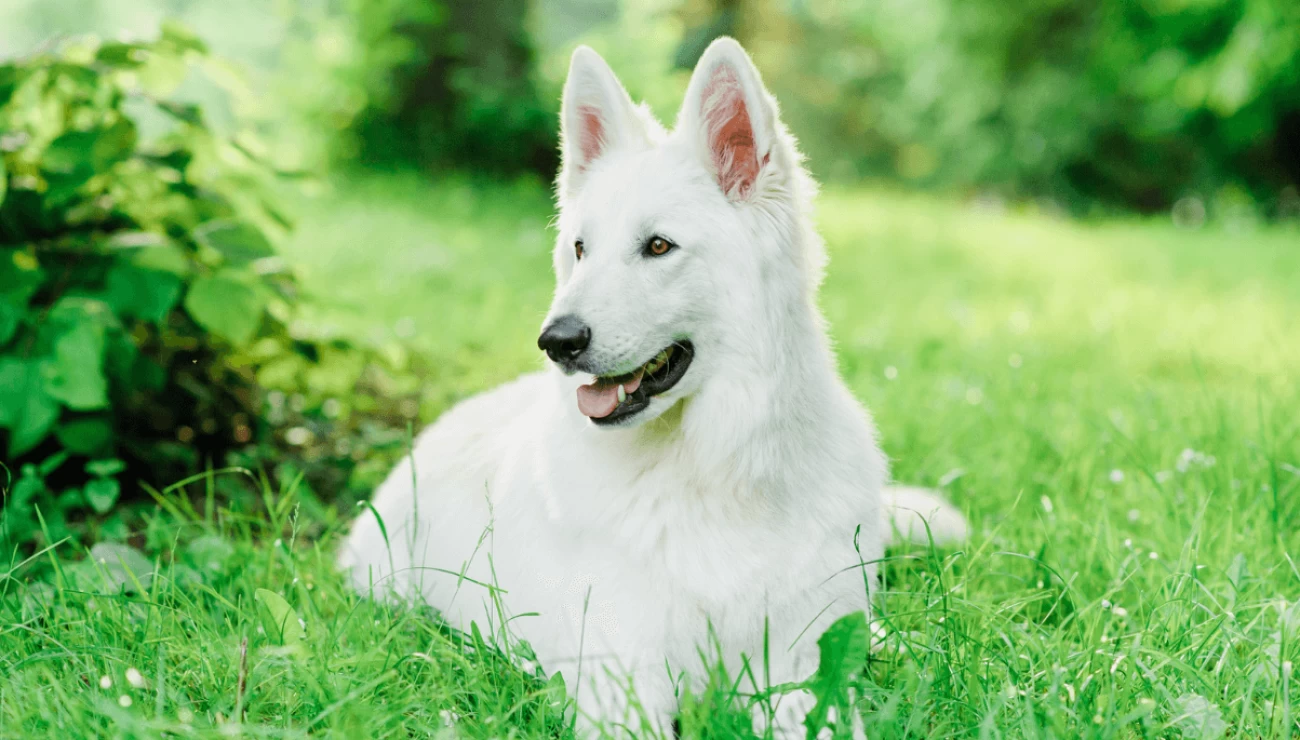
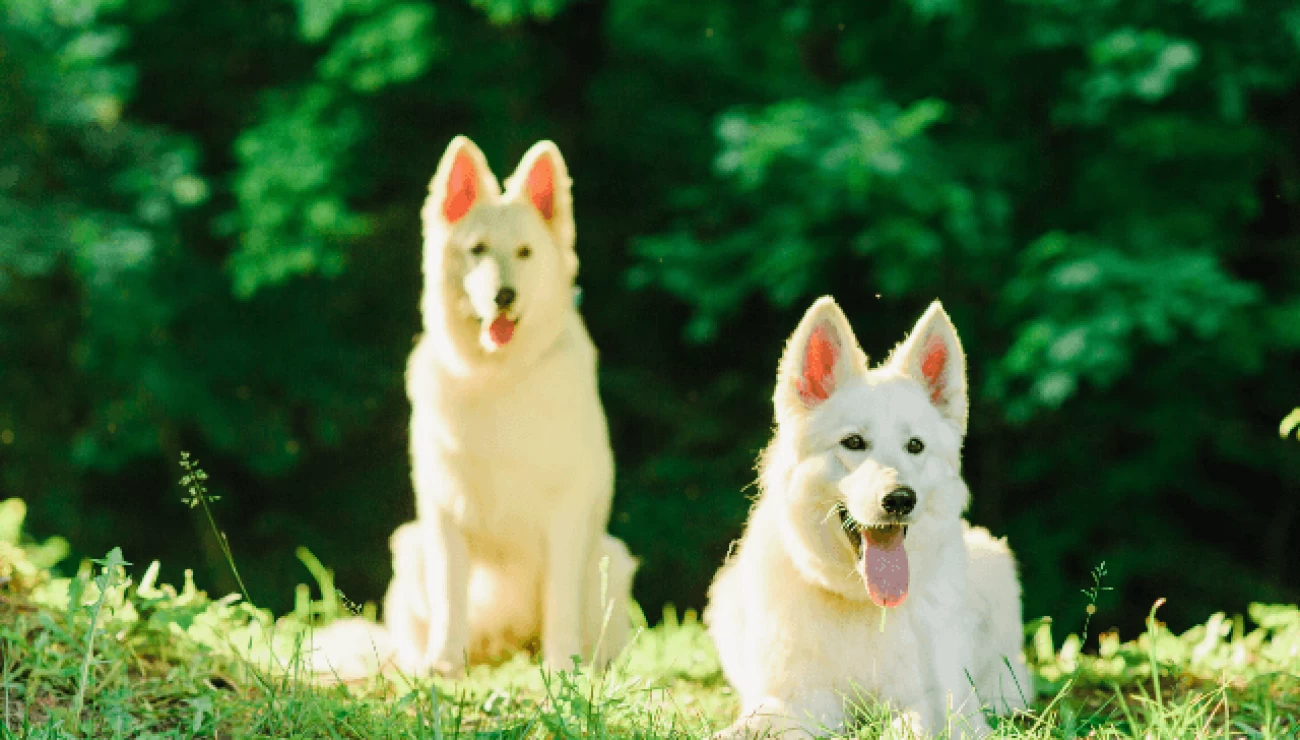
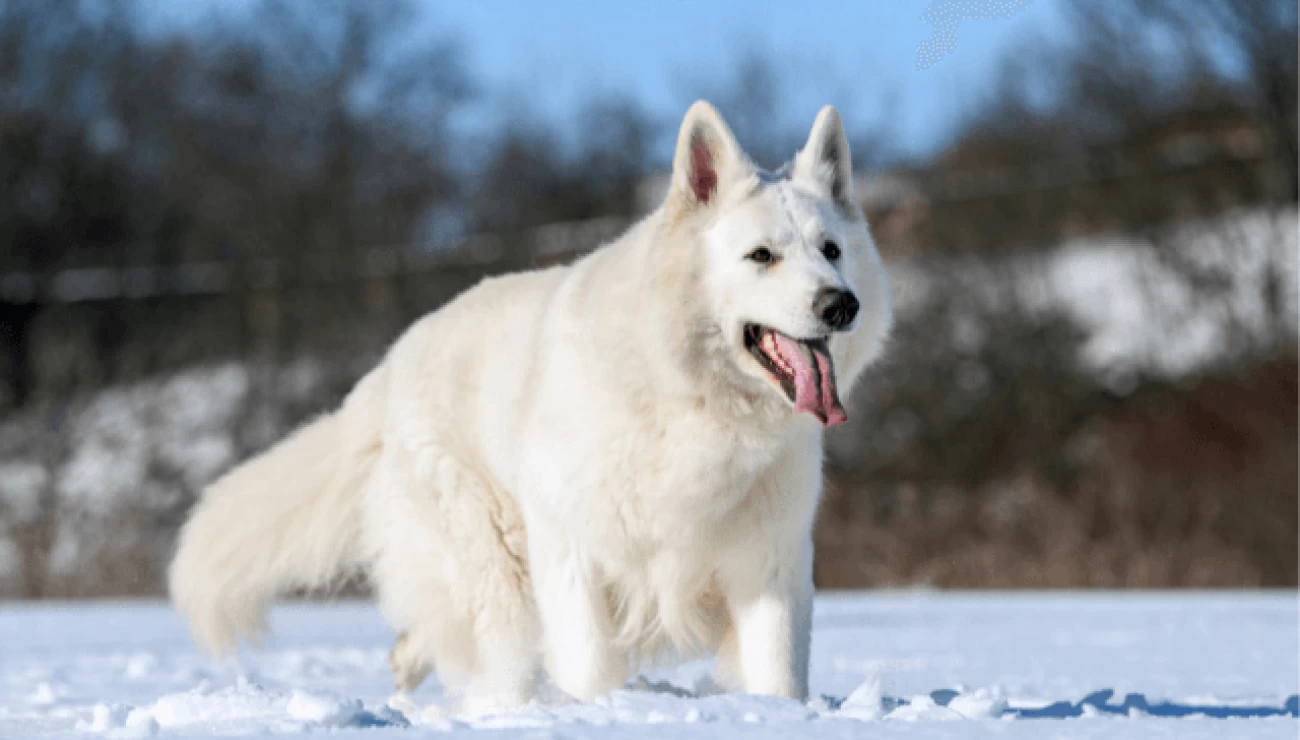
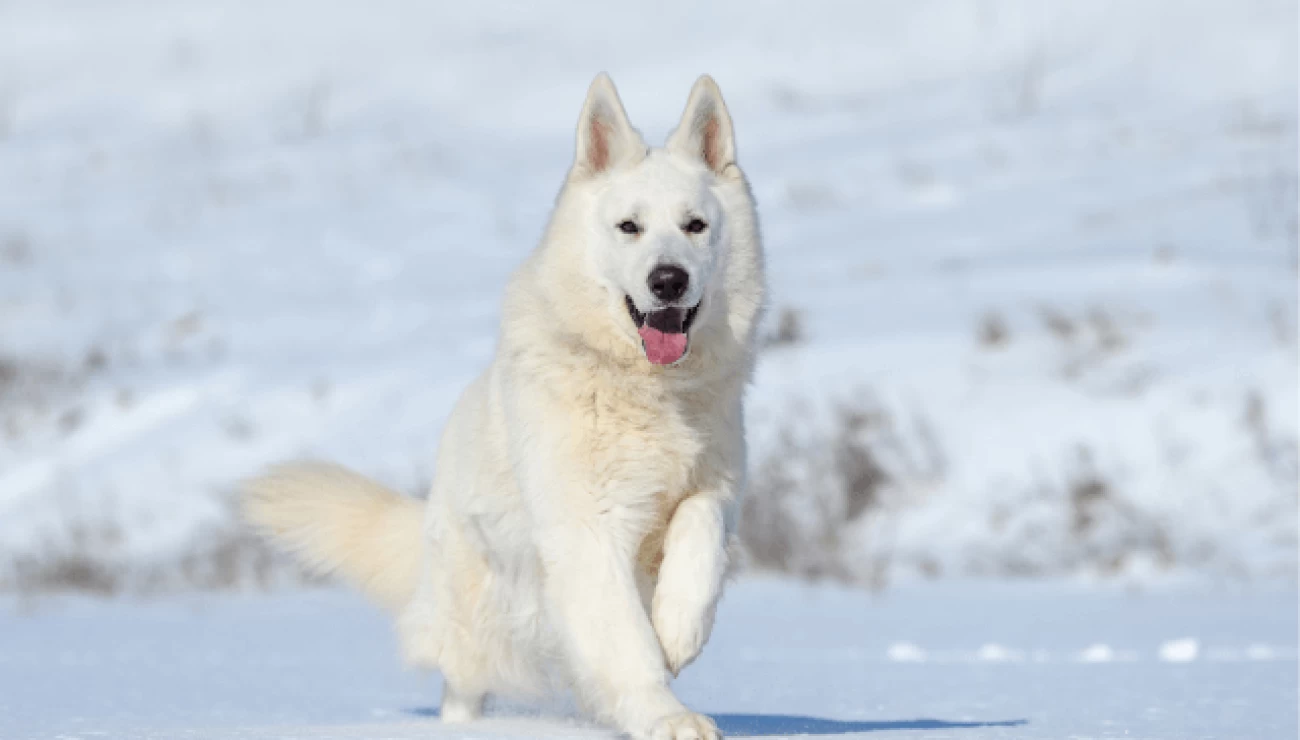
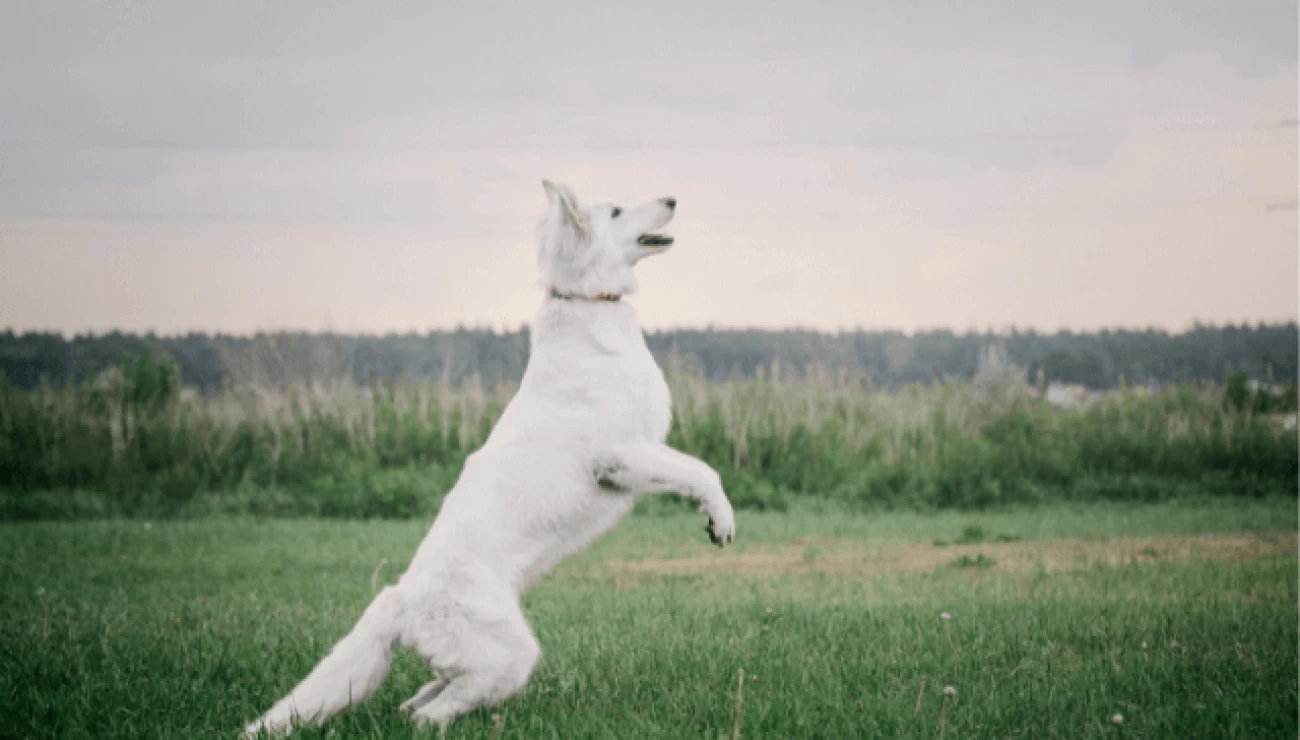
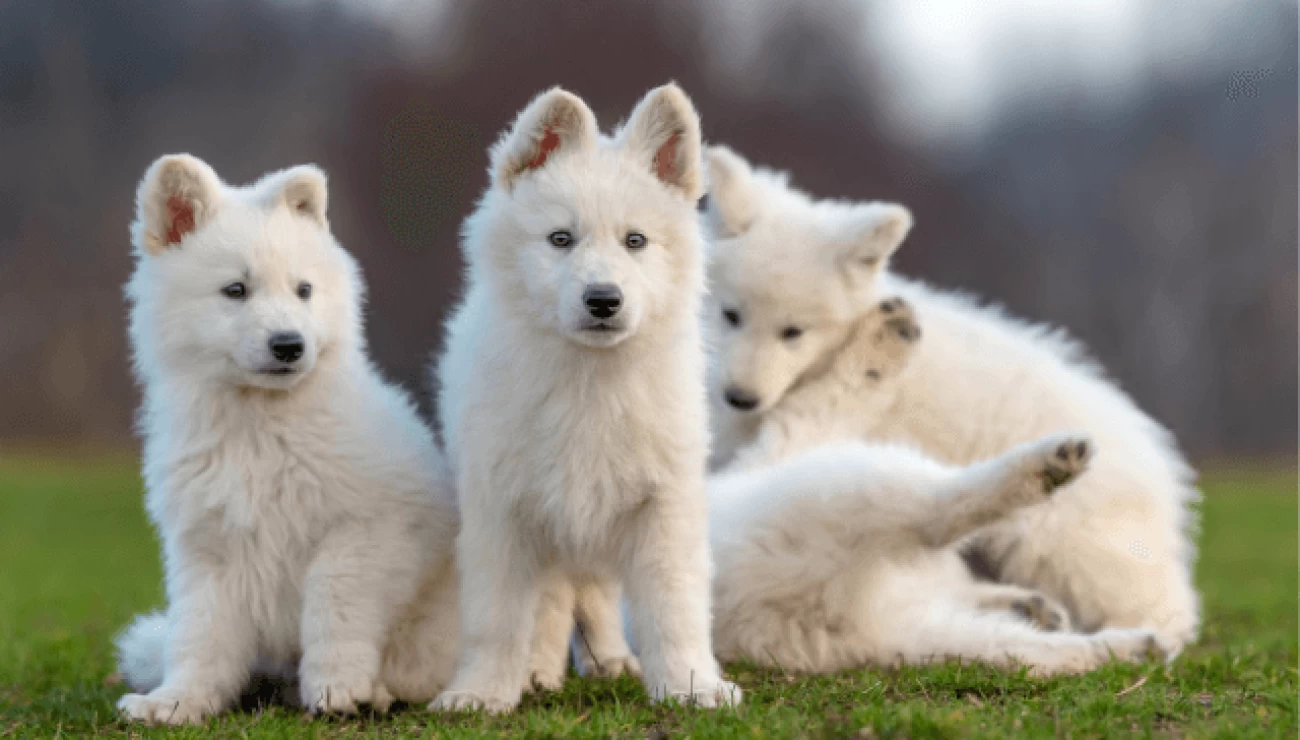
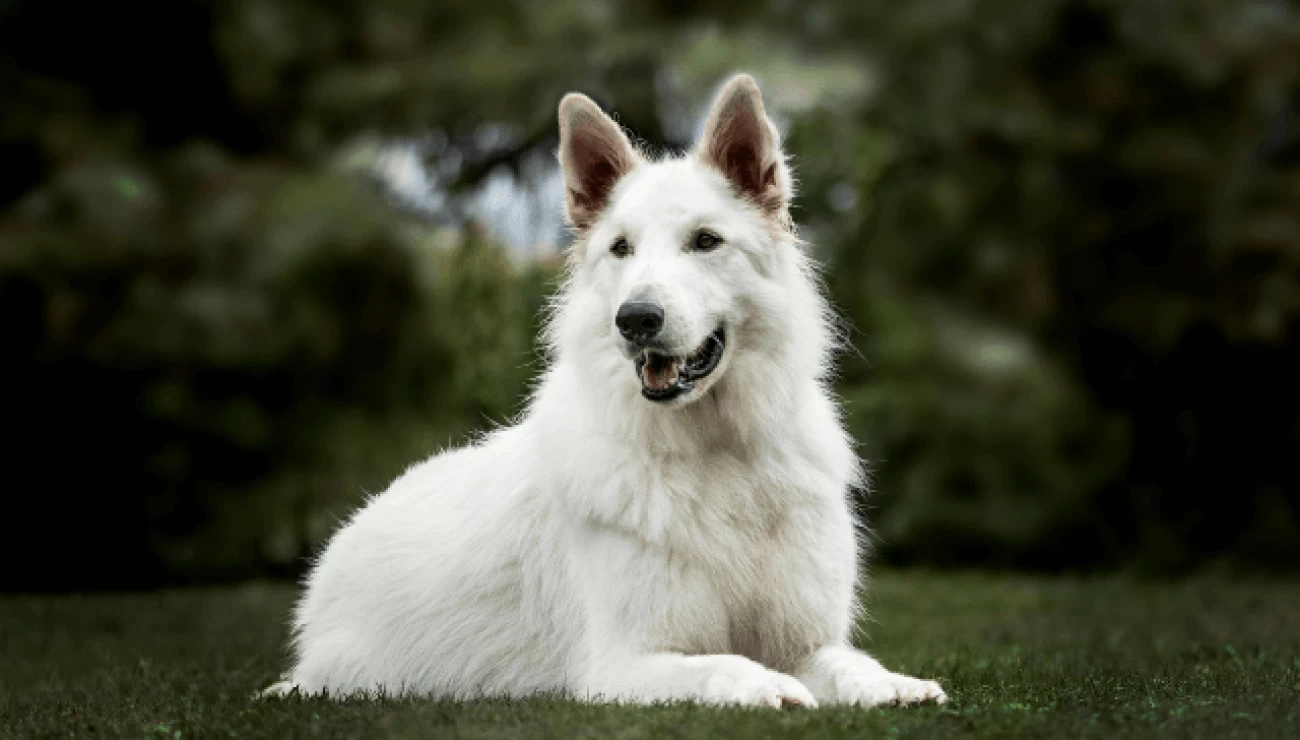
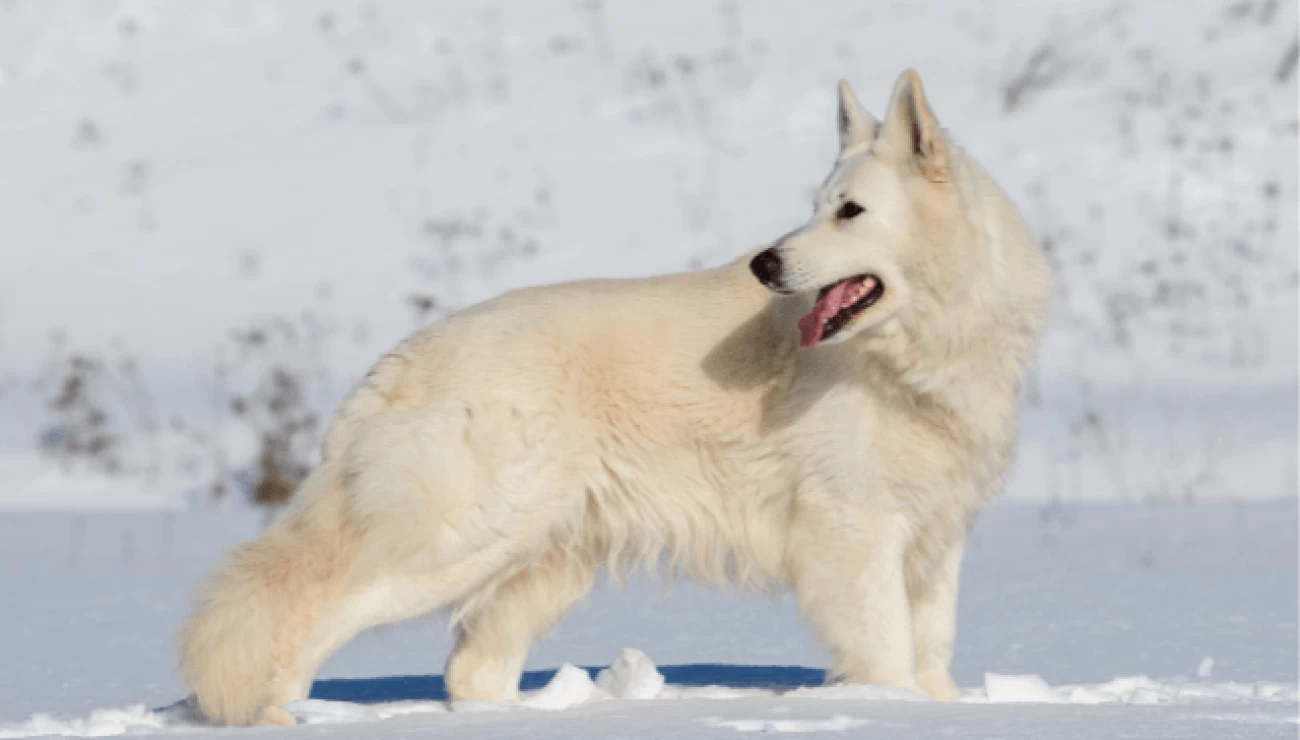
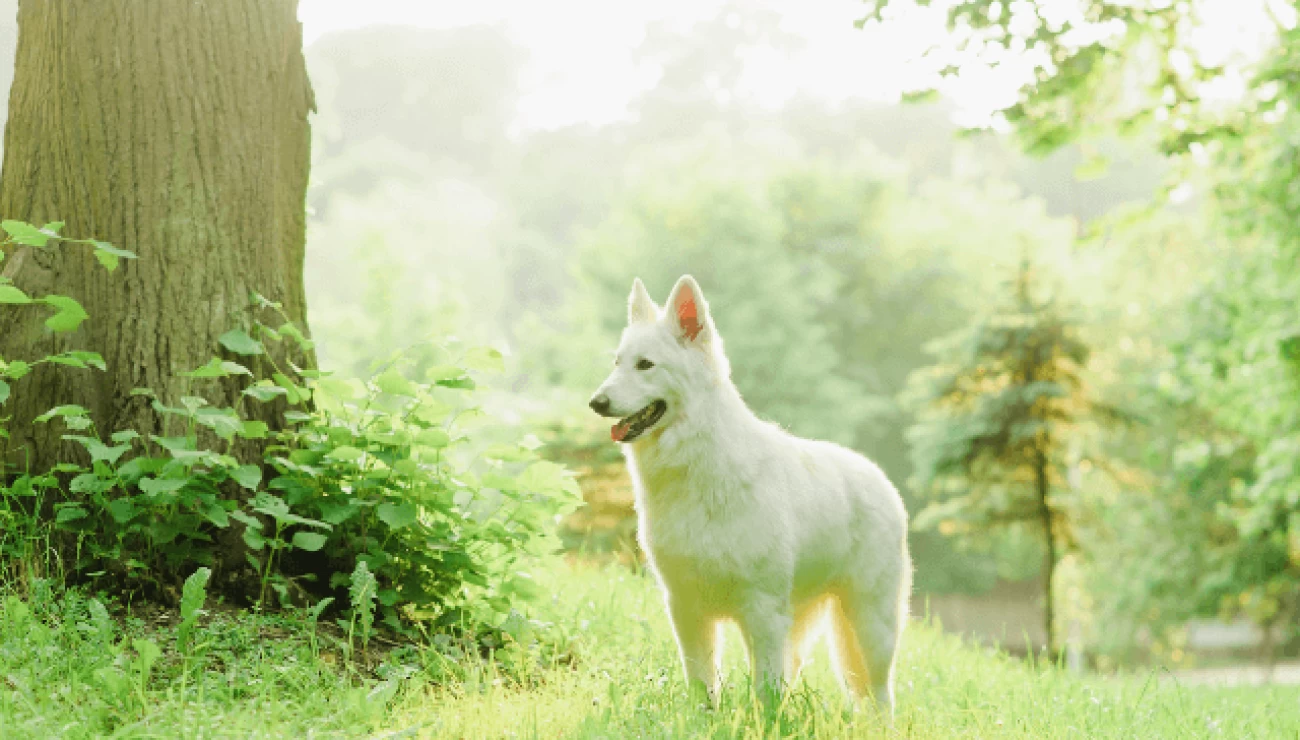
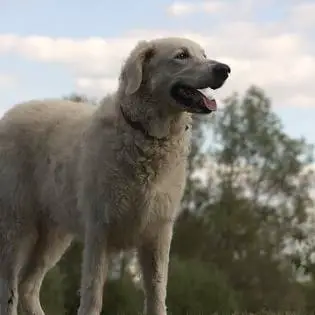


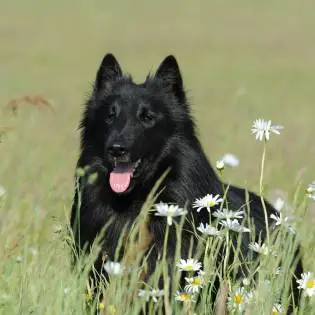







Share